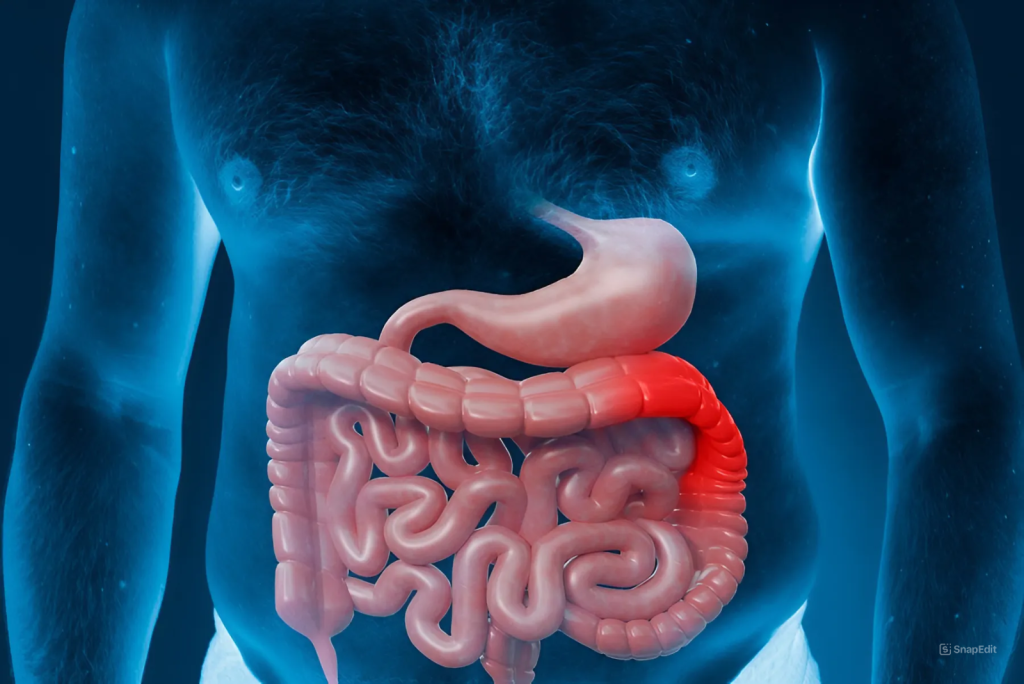Stomach diseases can significantly impact your quality of life, causing discomfort and affecting your daily activities. Understanding how to effectively treat these conditions is essential for maintaining good health. This guide provides a step-by-step approach to treating stomach diseases in Shalimar Bagh, focusing on finding the best Stomach Disease Treatment in Shalimar Bagh.
Common Stomach Diseases
Gastritis
Gastritis is the inflammation of the stomach lining, often caused by infection, chronic use of certain medications, or excessive alcohol consumption.
Peptic Ulcers
Peptic ulcers are sores that develop on the lining of the stomach, small intestine, or esophagus, usually due to Helicobacter pylori infection or long-term use of NSAIDs.
Gastroesophageal Reflux Disease (GERD)
GERD occurs when stomach acid frequently flows back into the tube connecting your mouth and stomach (esophagus), causing irritation.
Irritable Bowel Syndrome (IBS)
IBS is a common disorder affecting the large intestine, characterized by cramping, abdominal pain, bloating, gas, and diarrhea or constipation.
Stomach Cancer
Stomach cancer, also known as gastric cancer, starts in the stomach lining and can spread to other parts of the body if not treated early.
Symptoms of Stomach Diseases
Common Symptoms
Common symptoms of stomach diseases include:
- Abdominal pain
- Bloating
- Nausea and vomiting
- Loss of appetite
- Weight loss
- Heartburn
When to Seek Medical Help
If you experience persistent or severe symptoms, it’s crucial to seek medical help immediately. Early diagnosis and treatment can prevent complications and improve outcomes.
Risk Factors
Lifestyle Factors
Certain lifestyle factors can increase the risk of stomach diseases, such as:
- Poor diet
- Excessive alcohol consumption
- Smoking
- Chronic stress
Genetic Predispositions
Genetic factors can also play a role in the development of stomach diseases. A family history of gastrointestinal disorders can increase your risk.
Diagnosis of Stomach Diseases
Medical History and Physical Examination
A thorough medical history and physical examination are the first steps in diagnosing stomach diseases. Your doctor will ask about your symptoms, lifestyle, and family history.
Diagnostic Tests
Diagnostic tests may include:
- Endoscopy
- Blood tests
- Stool tests
- Imaging tests (X-ray, CT scan)
Choosing the Best Stomach Disease Treatment in Shalimar Bagh
Expertise and Experience of Specialists
Choosing a specialist with extensive experience and expertise in treating stomach diseases is crucial for effective treatment. The best Stomach Disease Treatment in Shalimar Bagh is provided by specialists like Dr. Alokit Gulati, who offers comprehensive care.
Advanced Diagnostic and Treatment Facilities
Look for clinics that use advanced diagnostic tools and treatment methods to ensure accurate diagnosis and effective treatment.
Treatment Options
Medications
Medications are often the first line of treatment for stomach diseases. These may include antacids, antibiotics, proton pump inhibitors, and H2 blockers.
Dietary Changes
Adopting a healthy diet is essential for managing stomach diseases. Avoiding trigger foods and incorporating nutrient-rich foods can help alleviate symptoms.
Lifestyle Modifications
Lifestyle changes, such as reducing stress, quitting smoking, and limiting alcohol intake, are crucial for managing stomach diseases.
Surgical Interventions
In severe cases, surgical interventions may be necessary. Procedures such as endoscopic therapy, laparoscopic surgery, or traditional surgery may be recommended.
Role of Nutrition in Treating Stomach Diseases
Recommended Diets
A balanced diet rich in fruits, vegetables, lean proteins, and whole grains can support digestive health and aid in the treatment of stomach diseases.
Foods to Avoid
Avoiding spicy, fatty, and acidic foods can help prevent flare-ups and manage symptoms effectively.
Importance of Follow-Up Care
Monitoring Progress
Regular follow-up appointments are essential to monitor your progress and ensure the treatment is effective.
Adjusting Treatment Plans
Based on your progress, your doctor may adjust your treatment plan to better suit your needs and improve outcomes.
Preventive Measures
Healthy Eating Habits
Maintaining healthy eating habits is crucial for preventing stomach diseases. Eating a balanced diet, staying hydrated, and avoiding processed foods can reduce your risk.
Regular Medical Check-Ups
Regular medical check-ups can help detect stomach diseases early and prevent complications.
Success Stories
Testimonials from Shalimar Bagh
Patients in Shalimar Bagh have experienced significant improvements in their quality of life after receiving treatment for stomach diseases. Their testimonials highlight the effectiveness of the best Stomach Disease Treatment in Shalimar Bagh.
Real-life Experiences
Real-life experiences shared by patients can provide valuable insights and motivation for others seeking treatment.
Managing Side Effects
Common Side Effects of Treatments
Medications and treatments for stomach diseases can have side effects such as nausea, diarrhea, and dizziness.
How to Mitigate Them
Discuss any side effects with your doctor. They can adjust your treatment plan or prescribe additional medications to manage side effects.
Cost Considerations
Understanding the Pricing
The cost of stomach disease treatment can vary based on the type of treatment, the severity of the condition, and the clinic’s location.
Factors Influencing Cost
Factors influencing the cost include the type of diagnostic tests, medications, and any surgical interventions required.
Long-Term Management
Preventing Recurrence
Long-term management involves adopting a healthy lifestyle, following your treatment plan, and attending regular check-ups to prevent recurrence.
Ongoing Care
Ongoing care includes monitoring your symptoms, adjusting treatments as necessary, and maintaining a healthy lifestyle.
Conclusion
Stomach diseases can be effectively managed with the right treatment and care. By choosing the best Stomach Disease Treatment in Shalimar Bagh, you can achieve significant improvements in your health and quality of life. Follow this step-by-step guide to navigate your treatment journey and ensure a successful outcome.


